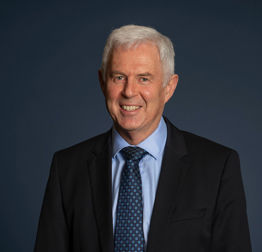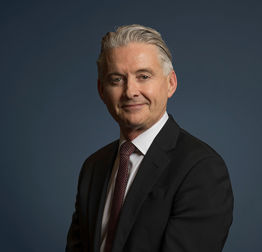A recent decision has highlighted the rare but important ability for the High Court to be appointed as a child's guardian in order to safeguard the child's best interests and ensure the child receives recommended medical treatment (even when that is against a parent's wishes...).
The facts
A DHB applied to the High Court for guardianship orders in relation to a nine year old boy 'John Dee' (John Dee was a fictional name provided by the Court - the child's real name and other personal details relating to the family involved are subject to permanent suppression orders). John had been diagnosed with HIV during infancy and, in accordance with recognised clinical practice, he had been prescribed antiretroviral medication.
However, John's father (and sole legal guardian) did not accept John's diagnosis and objected to the provision of antiretroviral medication. To quote the Court: "John's father James, and his stepmother, as the Board accepts, are highly responsible parents, and it has no wish to displace them. But James has never accepted that there is any such disease as HIV. Nor has he ever accepted that it might lead to AIDS or expose John to other unacceptable risks to his health or his life. James considers that AIDS results from the antiretroviral medication prescribed to counter HIV".
In recent years it had become apparent that John's father was not giving John his medication. While the clinicians accepted that John had not yet shown any illness or symptoms of concern, John's more recent tests showed that his immunity had reduced to dangerous levels and "[a]ccording to an international clinical benchmark he must now resume antiretroviral medication daily to avoid a real risk of serious, or even fatal, illness".
At the time of the hearing, John's father had "reluctantly" agreed to enter into an "agreement to treat" and as a result, a public health nurse was visiting John each morning to give him his medication. However, John's father continued to dispute both the diagnosis and the necessity of the medication and the DHB therefore applied for orders under the Care of Children Act, requesting that the Court be appointed as John's legal guardian until John turned 16.
The Court's decision
The Court set out the key legal principles and relevant case law. Consistent with previous cases, the Court accepted that it had a power to assume legal guardianship of a child but noted that "it must first be convinced that this is the only way to serve John's welfare and best interests".
The Court also recognised the father's rights and responsibilities as the sole guardian and emphasised that "[w]hether such orders would serve John's welfare and best interests has to be set against the principles in s 5, one of which is that a child's care, development and upbringing should rest 'primarily' with his or her parents or guardians".
Ultimately, the Court concluded that it was "satisfied that the only way to safeguard John's welfare and best interests, given James' fixed opposition to John's diagnosis and treatment, is for this Court to become his guardian until he becomes 16". The Court therefore granted the guardianship order and then appointed John's clinicians as the Court's agents to manage John's on-going clinical care (subject to a number of specific terms that are further set out in the Judgment). John's father was also appointed as the Court's agent and is to be responsible for all aspects of John's day-to-day care, subject to the condition that he must ensure that John is always available for treatment as specified by his clinicians.
What about John's views?
Interestingly (and somewhat surprisingly) John was not represented by a lawyer and (despite section 6 of the Care of Children Act) his views were not sought.
According to the Judgment, this was because John had not been told about his diagnosis (his father believed he was too young to be told) "and that is why no attempt was made before the hearing to elicit John's views, and why a lawyer for John was not appointed". The Court then went on to state that "[i]t was then accepted that John's interests would be adequately protected and promoted at the hearing by James and by John's responsible clinicians".
The Court did however note that John's clinicians intended to tell him about his diagnosis "in the next 18 months" and stated that "[i]f after John learned of his diagnosis, he had any difficulty with his treatment regime the Court would need to know". The Court then went on to say "[a]t this point I need only note that, if John were then to contest his need for medication, that would be significant. It could not be decisive".
How long will the orders last?
As well as opposing the orders, John's father also asked (in the alternative) that any orders be limited to 18 months. The Court rejected this idea, finding that "[o]n the evidence John's condition will remain unchanged until he is 16…" and stating that "[a]n order ending after 18 months, or at any other time within the next seven years, is at odds with that clinical reality". However, the Court did set the matter down for review in two years' time, at which point a lawyer is to be appointed to represent John and to set out his views on the matter (assuming that he has been told of his diagnosis by that time).
Questions?
The case discussed in this update is A District Health Board v James Dee [2015] NZHC 304. A full copy of the Judgment can be found here.





